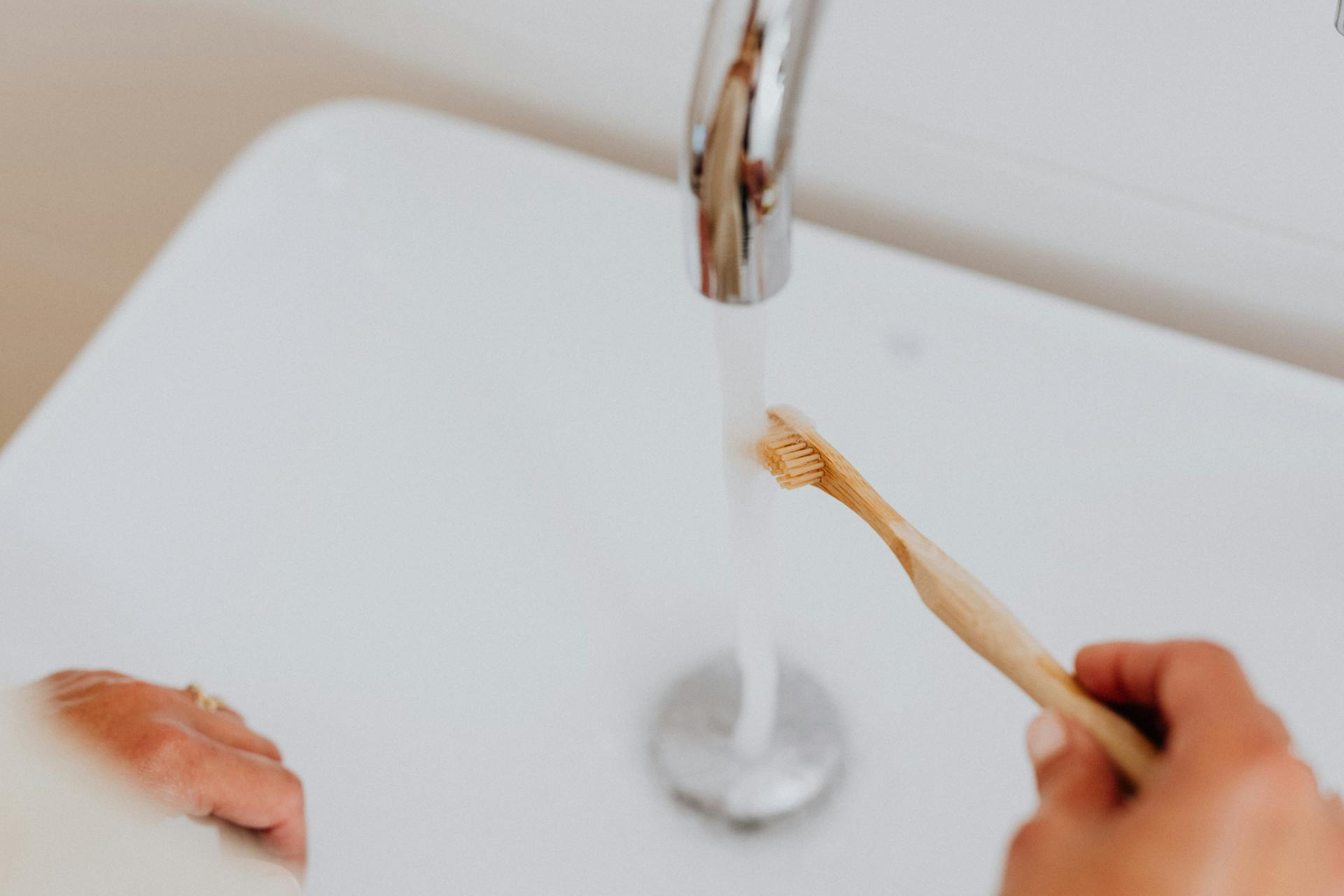
The simple answer to the question is yes, you can run your dishwasher if your sink is clogged. But before you rush to fire up your appliance, it’s important to consider a few key points that will help you make the most out of the experience and protect both your sink and dishwasher.
First, it’s essential to address the underlying issue of why the sink is clogged in the first place. Are there too many kitchen scraps in the trap or did someone put food down the drain without running hot water afterwards? If too much food has gone down the drain and caused a blockage, running the dishwasher may only worsen this by adding more water pressure. In such a case, it may be best to address this first.
Additionally, it’s important to check with your dishwasher manual as certain models feature specialized controls or mechanisms aimed at limiting backflow from sinks that are clogged. For example, many higher-end models have sensors that detect clogging and divert water away from it. It's also worth noting that not all dishwashers are designed for use in sinks that are prone to clogging so please check with your manufacturer prior to running it if you suspect clogging regularly occurs in your sink.
Finally, ensure you have a reliable back-up plan as running a dishwasher with a blocked sink may still cause serious damage over time due to increasing water pressure. Investing in protective equipment such as flapper valves can help reduce this stress and protect your appliance from potential damage if any further blockages develop while running the machine.
In short, while you certainly can run a dishwasher when you have a clogged sink, these additional precautions should always be taken beforehand when trying this approach so as to minimize risk of damages caused by increasing water pressure within plumbing systems during such an operation.
Related reading: Background Check
Is it safe to run my dishwasher if a drain is clogged?
The answer to the question of whether it is safe to run a dishwasher if a drain is clogged will depend on the severity of the blockage. In most cases, it is actually better to not use the dishwasher until a plumber has cleared out the obstruction. This is due to safety and efficiency reasons. Operate the appliance with a blocked drain can lead to further complications such as water damage, equipment malfunction and potential flooding.
If your dishwasher is connected to a garbage disposal, it is recommended to avoid using the appliance until you can safely clear out any blockage. If the obstruction exists elsewhere in your home’s drainage system, there could be additional complications that could occur since too much water pressure might be forced onto other plumbing fixtures or appliances when running your dishwasher with a clogged drain.
Moreover, an obstruction can reduce the dishwasher’s efficiency by preventing proper drainage from occurring at all. Be sure that any plumbing issue you are encountering is solved immediately before operating your dishwasher again. Additionally, cleaning out your drains and filters routinely can help ensure that clogged drains don't continue happening down the line.
See what others are reading: Stop Water
What should I do if my dishwasher won't drain due to a blocked sink?
Dealing with a dishwasher not draining due to a blocked sink can be incredibly frustrating and time-consuming. Fortunately, there are some simple steps you can take to attempt a repair before needing to call in an expert.
The most common causes of a blocked dishwasher are small food particles, grease or soap scum that got washed into the drain then become compacted and form a clog. Most of the time this problem can be cleared by using boiling water, vinegar and baking soda. Fill your dishwasher sink with one-half cup of baking soda and one cup of white vinegar. Then pour boiling water into the drain, let it settle for a few minutes before running the cycle again. This combination should help get rid of any drainage issues caused by food particles, grease or soap scum.
If the blockage persists you may need to use chemical agents such as drain cleaner or motorized augers to loosen and clear up any remaining material in the dishwasher pipe or drain line – proceed with caution if considering these options as they can do serious damage if not used properly. If none of these tactics work, consider calling in a professional plumber. A certified plumber will have the right tools, knowledge and experience needed to identify where your blockage is coming from, fix the issue and restore your dishwasher’s proper operation.
Discover more: Run Hot Water
Can I still use my dishwasher if there is an obstruction in my sink?
When a sink becomes blocked, it can be rather inconvenient and causing the water to not drain properly or at all. It can also cause extra stress if that obstruction is preventing you from using your dishwasher. But fear not; depending on the severity of the obstruction, you may still be able to use your dishwasher while the blockage persists.
The key factor here is whether or not the obstruction is affecting the loop recycled in most built-in dishwashers, which connects both the sink tap and the drainage pipe. The loop ensures that when water is being taken into the machine it's being replaced with clean water and steered away with waste water when washing has finished. If this path is obstructed, yet no waste water can escape – your dishwasher won’t have enough space to accomodate dishes, dishes won’t get cleaned properly due to lack of pressure and cleaning chemicals, plus it will take longer for your dishwasher to complete its cycle since it has insufficient drainage.
If a blockage does exist but isn’t affecting this loop running between your sink tap and drainage pipe, you should still be able to use your dishwasher in most cases by unplugging it from any power outlet that may be nearby and carefully removing any connections associated with drains or drainage hoses. You must also ensure no wastewater from either your taps or drainpipes is going directly into a septic tank as that could be potentially dangerous for natural groundwater or other ground sources.
It's advisable to find out what problem you're dealing with and get an expert opinion on whether or not you can continue using your dishwasher while there's an obstruction in your sink before proceeding, as this will prevent further damage/extended inconvenience over time.
For another approach, see: Who to Call When You Run Out of Gas?
What should I do if my dishwasher is not draining properly because of a clog in my sink?
If your dishwasher is not draining properly due to a clog in your sink, the best thing to do is take immediate action. The first step is to unplug the dishwasher and turn off the water supply. This will prevent any further water damage and help you determine exactly where the clog is located.
The next step is to inspect your sink pipes to identify the source of the problem. Check for visible clogs, such as food bits or large objects that might be blocking the pipe. Then, using a plunger or snaking tool, try to dislodge whatever is obstructing the drainage pipe – this should clear up most minor clogs. For stubborn or deeper clogs, it’s always wise to consult a professional plumber for assistance in clearing out long-term blockages.
Finally, if all else fails you may have to remove parts of your dishwasher from underneath your sink in order to gain better access for cleaning out the drainage pipe accurately. Afterward, reconnect everything back together and test that your dishwasher drains correctly before using again as normal. If you're still having difficulty getting it fixed, you may need a new part installed by a technician or an entirely new appliance altogether.
For more insights, see: Water Softener Runs
Is it rude to run my dishwasher if my sink is backed up?
In today’s increasingly complex plumbing systems and home environment, ultimately the answer to this question comes down to a matter of personal judgment. Despite all our advances in technology, many homes still have limited and fragile water and sewer systems that prevent us from treating our plumbing like we do modern day electronic devices. So running a dishwasher when you have a backlog of dirty dishes and your sink is backed up could be seen as not being considerate of your own plumbing system and the resources needed to get it back up and running again.
At the same time, we are living in an age where there is very little penalty for running our dishwashers and disposals - particularly when in comparison to more diligent home maintenance activities like cleaning out gutters or changing out humidifier filters. These tasks require more time and energy, so if you can spare some extra Cyles or Points use on your Electricity bill - then why not run your dishwasher when your sink is backed up?
Let's also consider the other side of this argument. Let’s say you don’t run your dishwasher when it's backed up - then what happens? What about the additional mess you will make by leaving those dishes around? Is it worse having it sitting in front of you every day in an unclean state than taking a few extra cycles off your electricity bill? Or will the energy consumption really cause enough strain on the environment to counteract any potential spillover cost from clogged pipes or additional mess?
Ultimately the decision will come down to personal judgement, but considering all facts before making a decision can help us navigate this situation with consideration for both our physical needs and our environmental needs.
Broaden your view: How to Train a Husky to Not Run Away?
Is it dangerous to utilize my dishwasher if there is a clog in the sink?
When dealing with clogged kitchen drains, it is often tempting to try and fix the problem with a dishwasher. However, using a dishwasher when there’s a clog in the sink can be very dangerous, as it can easily cause water damage to the whole house.
The most common problem caused by using a dishwasher when there’s a sink clog is water leakage. When the sink’s drains are blocked, they won’t be able to handle large amounts of water discharged from the dishwasher. Therefore, this excess water will escape around the seal of the washer and flood your kitchen. Not only is this a health risk due to potential contamination from raw sewage, but it also increases your utility bills and poses an additional hazard of electrical shock.
In addition, another issue commonly encountered with kitchen drainage systems affected by sink blockages is that pressure builds up in the pipes due to foreign objects or other blockages restricting the normal flow of fluids. This increased pressure may cause plastic pipes to burst which will damage not only your appliances and cabinets but also your floors and walls as well as creating an unsanitary mess in your home.
Given these risks and hazards, it is best for homeowners to take proactive measures before utilising their dishwasher if there is any indication that their sinks may be clogged or blocked up. Contacting an experienced plumber can help you get rid of all clogs safely without risking any costly long-term damages or repairs. Additionally, seeking an expert's assistance may mean that you don't need to replace certain appliances and plumbing fixtures or materials damaged by improper usage of the dishwasher in relation to a sink clog.
Readers also liked: What to Wear When Running in Rain?
Sources
- https://www.homedepot.com/c/ah/how-to-unclog-a-kitchen-sink/9ba683603be9fa5395fab90b9840228
- https://fredsappliance.com/dishwasher-repair/the-seven-ways-to-unclog-a-dishwasher-drain/
- https://www.whirlpool.com/blog/kitchen/how-to-fix-a-clogged-dishwasher.html
- https://cleanersadvisor.com/clogged-dishwasher/
- https://www.bobvila.com/articles/clogged-kitchen-sink/
- https://yardandgardenguru.com/can-i-run-my-dishwasher-if-my-sink-is-clogged/
- https://www.tipsbulletin.com/how-to-unclog-a-dishwasher/
- https://kitchenbuds.com/dishwasher-guides/can-i-run-my-dishwasher-if-my-sink-is-clogged-what-to-do/
- https://housetrick.com/dishwasher-and-clogged-sink/
- https://howdykitchen.com/can-i-run-my-dishwasher-if-my-sink-is-clogged/
Featured Images: pexels.com


